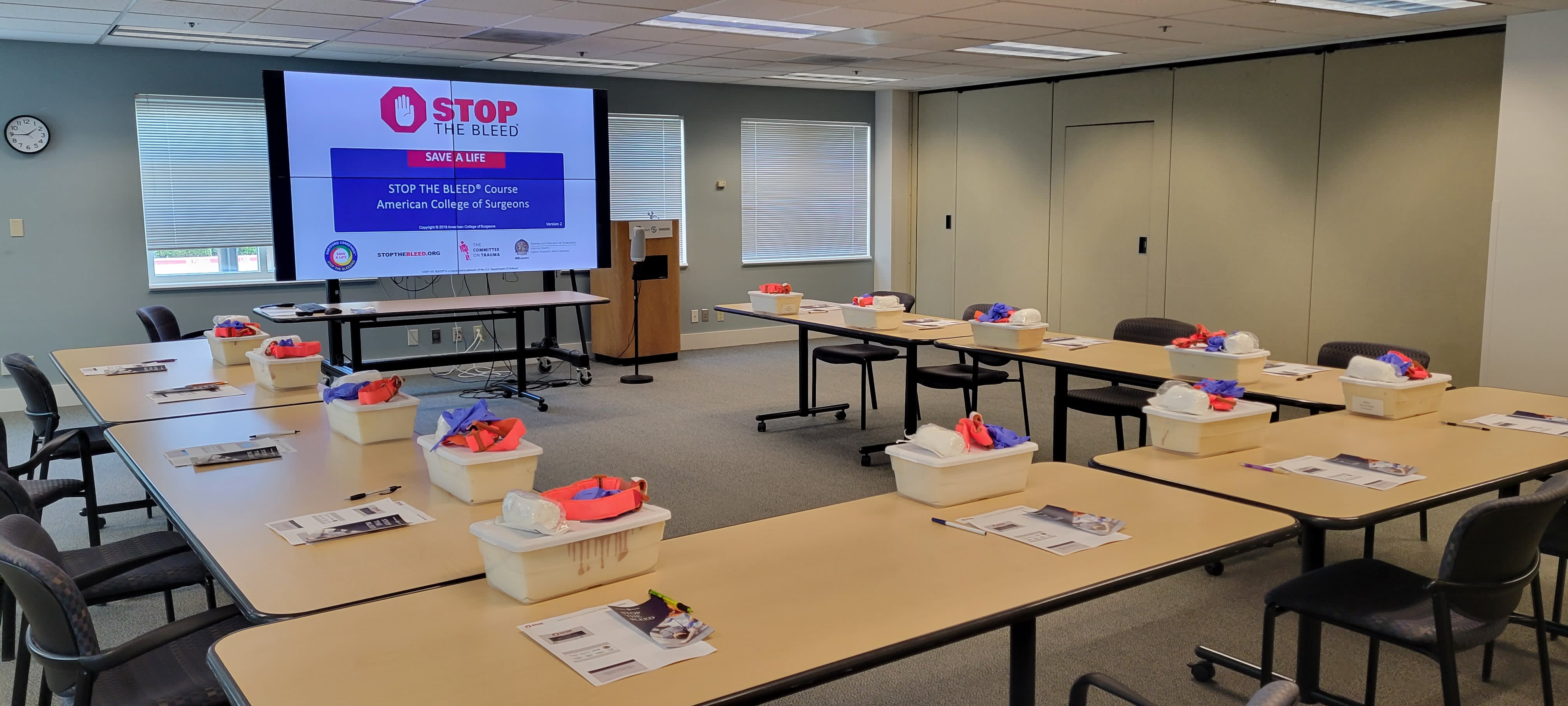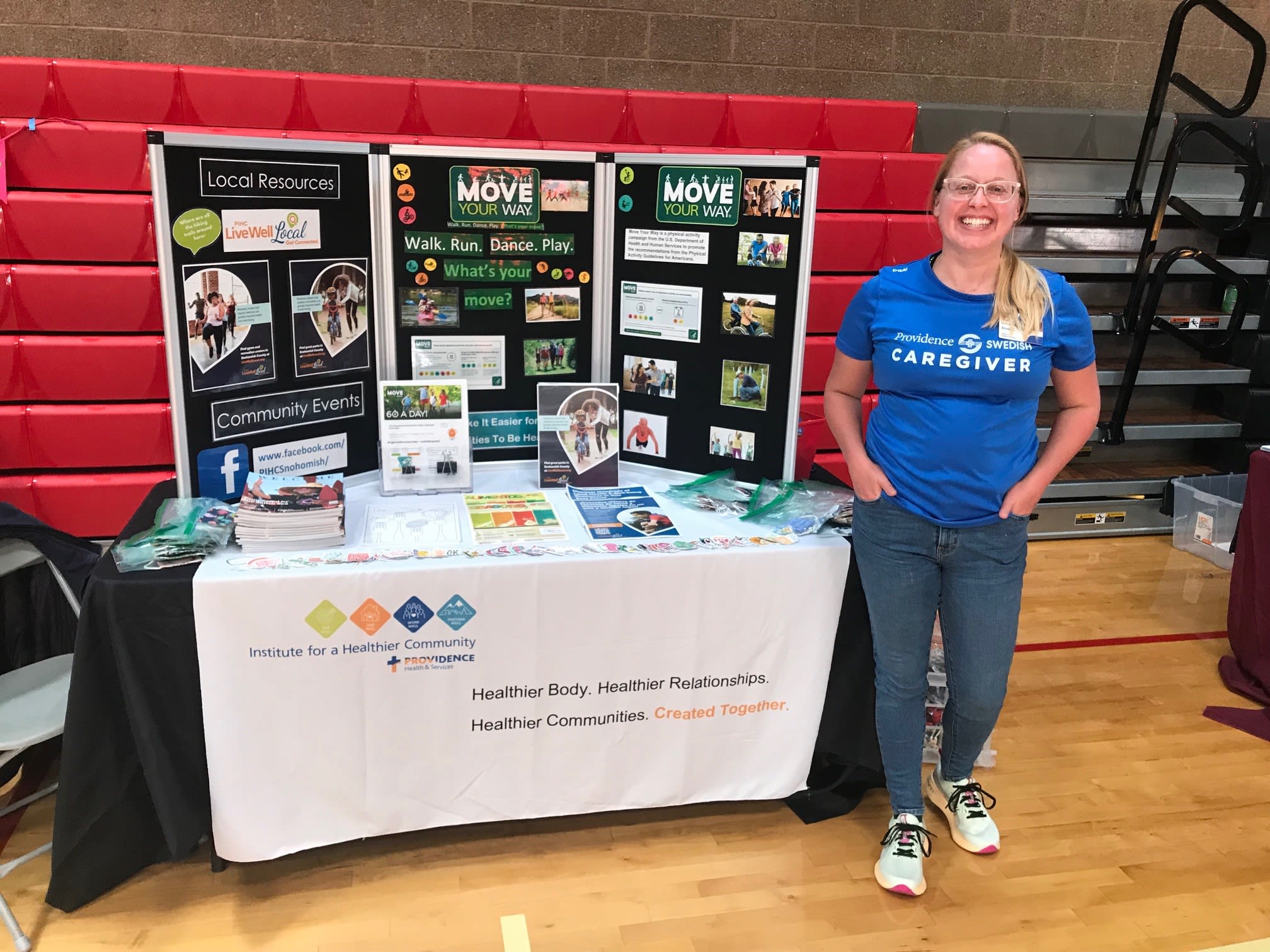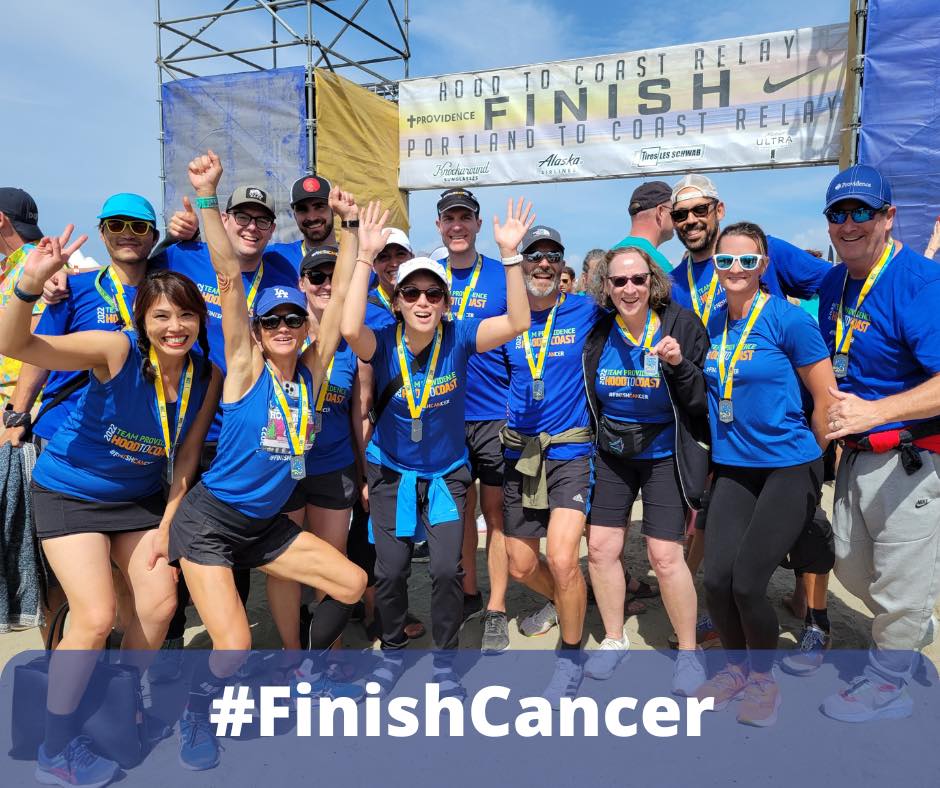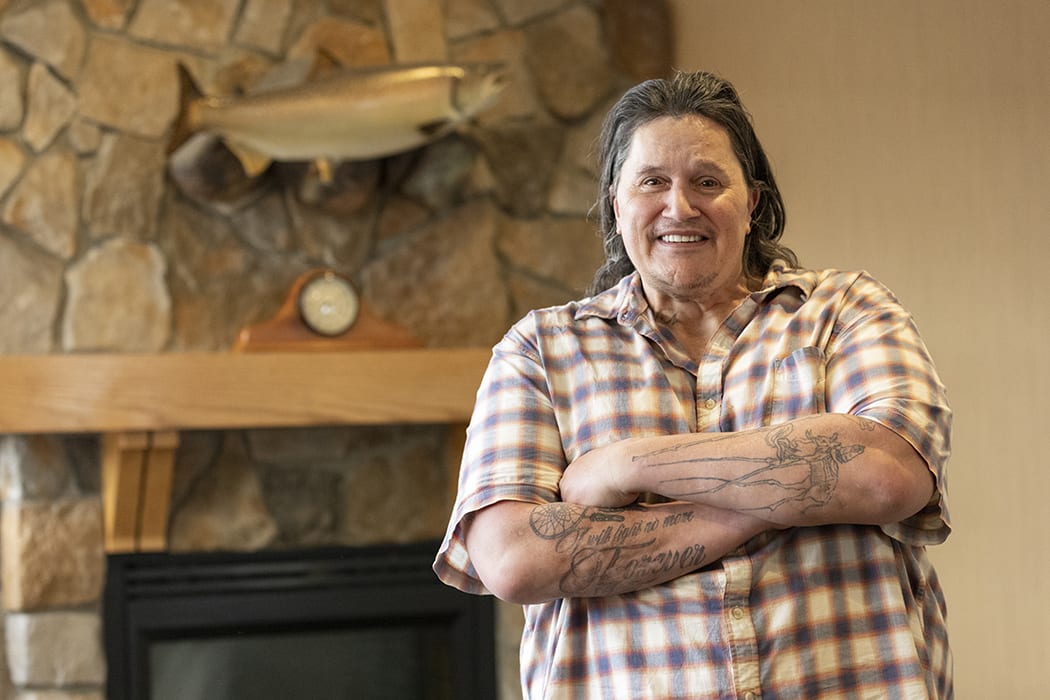Providence programs bring health disparities to light during Minority Health Month
April is Minority Health Month, a month to raise awareness of the health disparities racial and ethnic minority groups face and to improve health by addressing these disparities. True to our vision of health for a better world and Providence’s commitment to health equity, our caregivers have made impactful partnerships throughout the communities we serve focused on listening to the needs of the communities and providing support to implement strategies and proven practices to resolve the root causes of health disparities.
We will be highlighting three Community Partnerships programs that exemplify this commitment to addressing inequities: the Community Health Worker Academy, Paso a Paso, and Refugee Assistance and Immigration Services.
Training Community Health Workers to improve care for underserved communities
As a way of addressing the health disparities that impact racial and ethnic minority groups, many hospitals and public health organizations have added community health workers. These community members, who work or volunteer to provide services including health education, medical advocacy, system navigation support, and more, to their teams to better connect with their patients.
Having seen success from the CHW model and wanting to improve the patient experience, Providence launched the Community Health Worker Academy pilot program in 2021 in partnership with Charles R. Drew University School of Medicine and Science (CDU) and with support from Cedars Sinai Medical Center and the California Governor’s Office of Business and Economic Development. The program consists of five weeks of clinical training, a six-month, paid internship in a healthcare setting, and continuing education to strengthen care management skills.
Providence community health workers at a community event.
The CHW Academy was developed to create a formalized training process and to establish a pipeline of CHWs who have the necessary core competencies to work and grow in healthcare settings. By recruiting participants from under resourced communities, these CHWs will improve effective communication and better understanding between providers and patients. This expected outcome will play a role in addressing the inequities that racial and ethnic minority groups face when seeking health care.
The first two cohorts have graduated from the Community Health Worker Academy, with a total of 26 individuals graduating in July 2021 and February 2022. Upon completion of the 6-month internship, Kristy Torres, a member of the inaugural cohort, was offered and accepted a full-time permanent position as a Community Health Worker with Providence’s Community Health Insurance Program where she can continue to learn and serve her local community. “The Academy was a godsend to me because it’s helping me grow in my career and personally,” said Torres. “I’m going to see how far I can go to help as many people as I can.”
To learn more about the Community Health Worker Academy, check out our blog or their website.
Paso a Paso provides health education for the Latinx and Hispanic community
The Paso a Paso (Step by Step) program is one of an ever-growing list of programs Providence is bringing to the many communities we live and work in. The program offers free health education and assistance in Spanish to the Latino community that is served by St. Joseph and Redwood Memorial Hospitals.
Programs like this are key to addressing the health inequities that the Latino community faces across our country, which have only been worsened by the COVID-19 pandemic. Providing access to culturally appropriate services in Spanish removes the language barrier and makes the preventative information and support offered more accessible.
A happy baby receiving an infant massage, as taught by Paso a Paso staff.
When the program started over 15 years ago, Paso a Paso offered childbirth education and a home visiting program for Spanish-speaking parents. Over the years, more classes and support groups have been added to the program to best support families’ safety, health, and wellness. Now, Paso a Paso’s expert, bilingual staff have a range of offerings such as:
- Parent classes including childbirth education, newborn and postpartum care, lactation, infant massage, parenting and car seat safety
- Garden and nutrition activities. This includes the Seed to Supper classes, which show families how to successfully grow some of their own food on a limited budget.
- Support groups for families to connect, including a support group for families with kids who have special needs and a postpartum support group.
- Home visits or e-visits for families who need individual support, referrals, and help with navigating the healthcare system.
Also, from March to April, Paso a Paso offered Attachment Vitamins classes, an evidence-informed parental education program that provides knowledge about early emotional development and the effects of stress and trauma. These classes are meant to help parents better understand their children’s needs, respond sensitively to challenging behaviors, and strengthen the parent-child relationship. When asked about Attachment Vitamins, one parent shared, “These classes were good because we learned how to help our children and ourselves. And how to have the communication with our children that we did not have when we were growing up.”
In addition to classes, Paso a Paso also hosts community events, family picnics, harvest days, and community walks that support health, safety, and connection.
To learn more, check out our interview with Jessica Clothier, the lead community health worker of Paso a Paso.
Employment training and support for refugees in Alaska
Refugees around the world face a host of health disparities, including challenges associated with legal status, language barriers, employment, discrimination, and more. In Anchorage, the Catholic Social Services Alaska Refugee Assistance and Immigration Services (RAIS) program is working to improve health and address disparities faced by refugees by increasing access to support and services that can help refugees build safe and independent lives in the US.
In a unique collaboration between Providence and CSS, the RAIS Trainee program at Providence Alaska Medical Center places refugees in various hospital departments for hands-on training. This helps trainees build workplace skills and job competencies that enhance long term employability and create opportunities for greater economic stability. By focusing on self-sufficiency, community integration, and respect for cultures, the RAIS trainee program serves as an important bridge for refugees to gain the experience needed to find employment.
The newest employee cohort is from Afghanistan and we are pleased to welcome Wahidullah, Samar, and Zahidullah to the Providence family while they are with us in the trainee program.
To learn more about the Refugee Assistance and Immigration Services program, please visit the website.
Minority Health Month 2022
If you are interested in learning more about Minority Health Month or are interested in getting involved, please visit the National Minority Health Month website.
--
Visit our Annual Report to our Communities page
To learn more about what we’re doing to help our caregivers and other community partners, check out our Annual Report to our Communities.






